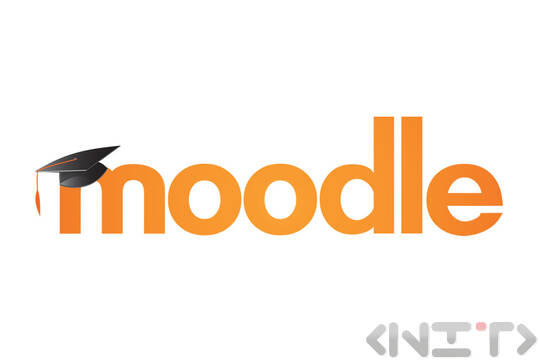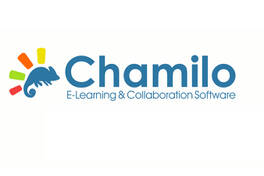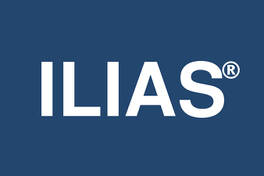
Approximate reading time: 2m 40s
Moodle: One of the World’s Leading Learning Management Systems (LMS)
Moodle is one of the most widely used learning management systems (LMS) globally. It allows the creation, organisation, and management of online courses, tests, assignments, and training programmes for schools, universities, and companies.
The platform is open-source, meaning it can be installed, customised, and extended to suit the needs of any organisation.
What is Moodle?
Moodle (Modular Object-Oriented Dynamic Learning Environment) is an e-learning software that enables you to:
- Create online courses
- Conduct tests and exams
- Manage users and roles
- Track progress
- Automatically issue certificates
It supports SCORM, LTI, xAPI, and many other e-learning standards.
How Does Moodle Work?
Moodle operates as a web-based platform. This means that:
- Learners access it via their web browser
- Teachers upload materials and assignments
- Administrators manage access
The platform can be:
- Installed on your own server
- Used in the cloud
- Integrated with HR, CRM, or ERP systems
Why is Moodle So Popular?
- Open-source Model
No licence fees and full control over the system. - Flexibility
Suitable for small organisations and universities with tens of thousands of users. - Active Community
Regular updates and thousands of plugins. - Extensibility
Over 1,500 additional modules available.
Who Uses Moodle?
- Universities
Moodle is widely used by universities for distance and blended learning. - Schools
Suitable for online classes, tests, and homework assignments. - Corporate Training
Companies use it for onboarding, internal training, and certification.
Advantages of Moodle
- SCORM and video support
- Mobile application
- Automatic grading
- Role and permission management
- GDPR tools
- Certification mechanisms
Moodle vs Other LMS Systems
| Feature | Moodle | Commercial LMS |
|---|---|---|
| Licence | Free | Paid |
| Customisation | High | Limited |
| Data control | Full | Partial |
| Integrations | Yes | Yes |
Frequently Asked Questions
Is Moodle free?
Yes, the platform is open-source and has no licence fee.
Is it difficult to install?
It requires technical configuration of a server, database, and security settings.
Is it suitable for businesses?
Yes, many companies use it for internal training and certification.
Professional Moodle Implementation in Bulgaria
If you are looking for Moodle implementation, professional installation, or support for a Moodle platform, it is crucial that the system is configured correctly from the very beginning.
Moodle is a powerful LMS system, but its effectiveness depends on:
- Proper server configuration
- Performance optimisation
- Security and personal data protection
- Correct role and access management
- Integration with internal systems
NIT – New Internet Technologies Ltd. offers professional Moodle implementation for universities, companies, and training centres in Bulgaria.
Moodle Installation – What’s Included?
Professional Moodle installation includes:
- Server preparation (Linux, Apache/Nginx, PHP, database)
- Installation of the latest stable version of Moodle
- Domain and SSL certificate setup
- Database and caching optimisation
- Role and permission configuration
- Activation of SCORM and LTI modules
- Backup and restore settings
- GDPR configuration and data protection
The goal is to provide you with a stable, secure, and fast platform, ready for real use.
Moodle Implementation Packages
Basic Package – Moodle Installation
Suitable for small organisations, schools, and training centres.
Includes:
- Moodle installation
- Basic configuration
- User and role setup
- SSL protection
Professional Package – Moodle for Business
Suitable for universities and companies with more complex structures.
Includes:
- Custom design (branding)
- Plugin setup
- Report configuration
- Performance optimisation
- Support during launch
Corporate Package – Integrations and Automation
For organisations needing integration and automated processes.
Includes:
- Integration with HR systems
- Microsoft Entra / SSO
- CRM / ERP connections
- Automatic enrolment and certification
- Monitoring and long-term support
Moodle Hosting and Support
In addition to installation, we also offer:
- Cloud Moodle hosting
- VPS configuration
- Performance monitoring
- Regular version updates
- Support and issue response
A fast and stable LMS system is critical for learners – delays lead to dropouts and low engagement.
Moodle for Business – Corporate Academy
Many companies use Moodle for:
- Onboarding programmes
- Health & safety training
- Regulatory training
- Product and sales training
- Certification programmes
We develop Moodle as an internal corporate academy, tailored to your organisation’s structure and team requirements.
Why is Professional Configuration Important?
The most common problems with self-installation are:
- Slow platform performance
- Errors during tests and exams
- Lack of backups
- Incorrect security settings
- Non-compliance with GDPR
Professional implementation saves time, technical risks, and future costs.
Request a Consultation for Moodle Implementation
If you are planning to implement Moodle or want to upgrade an existing system, we can prepare a tailored proposal based on:
- Number of users
- Type of training
- Required integrations
If you are interested in our services or have additional questions, you can contact us at: office@nitbg.com, +359 878 685 304



